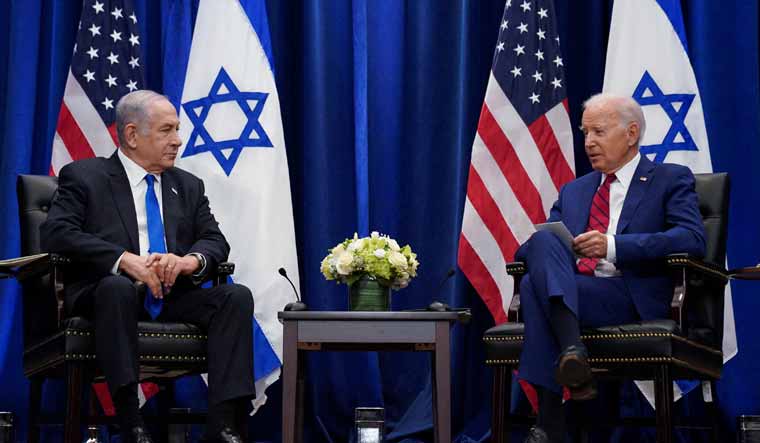Israel has announced it approved the opening of two routes into Gaza to allow more humanitarian aid into the territory after Israeli Prime Minister Benjamin Netanyahu had a tense phone conversation with US President Joe Biden on Thursday.
On Friday, Israel announced the Erez Gate in northern Gaza will be temporarily re-opened for the first time since the start of the war. The Ashdod Port will also be temporarily opened for humanitarian deliveries. Israel will also increase the amount of aid from Jordan moving through the Kerem Shalom crossing.
This comes as Biden issued an ultimatum to Netanyahu: protect Palestinian civilians and foreign aid workers in Gaza or Washington could rein in support for Israel in its war against Hamas militants. Though the White House did not say exactly what steps it wanted Netanyahu to take or detail the consequences, analysts say Biden could have threatened to slow U.S. arms transfers to Israel or to temper U.S. support at the U.N.
However, Israel's announcement of opening aid routes was welcomed by the White House, which called for Israel to immediately implement them.
"As the President said today on the call, US policy with respect to Gaza will be determined by our assessment of Israel’s immediate action on these and other steps, including steps to protect innocent civilians and the safety of aid workers," National Security Council spokesperson Adrienne Watson said in a statement.
Israel's decision to open the aid routes comes as international pressure mounts on Netanyahu, especially in the wake of the attack that killed seven World Central Kitchen (WCK) aid workers. Though Israel admitted it was a mistake, Netanyahu's statement that "these things happen in war" triggered a global outrage.
Israel was already facing growing isolation over the way it had conducted its war against Hamas in Gaza, where more than 33,000 Palestinians have been killed. While globally he faces ceasefire calls, domestically the families of the hostages who remain in Gaza accuse him of not prioritising their release.
Analysts see this as a significant move. "The president, in effect, is saying meet these humanitarian needs or I will have no choice but to condition (military) assistance," Dennis Ross, a veteran U.S. diplomat now at the Washington Institute for Near East Policy told Reuters.
As for Biden, the change in US stance was significant in the wake of the upcoming elections. Biden has seen his support base erode over the Israel policy with progressive Democrats expressing disappointment at the Palestinian civilian death toll.


